THE FUTURE OF MEDICINE, TODAY
MEDICINE BMBS
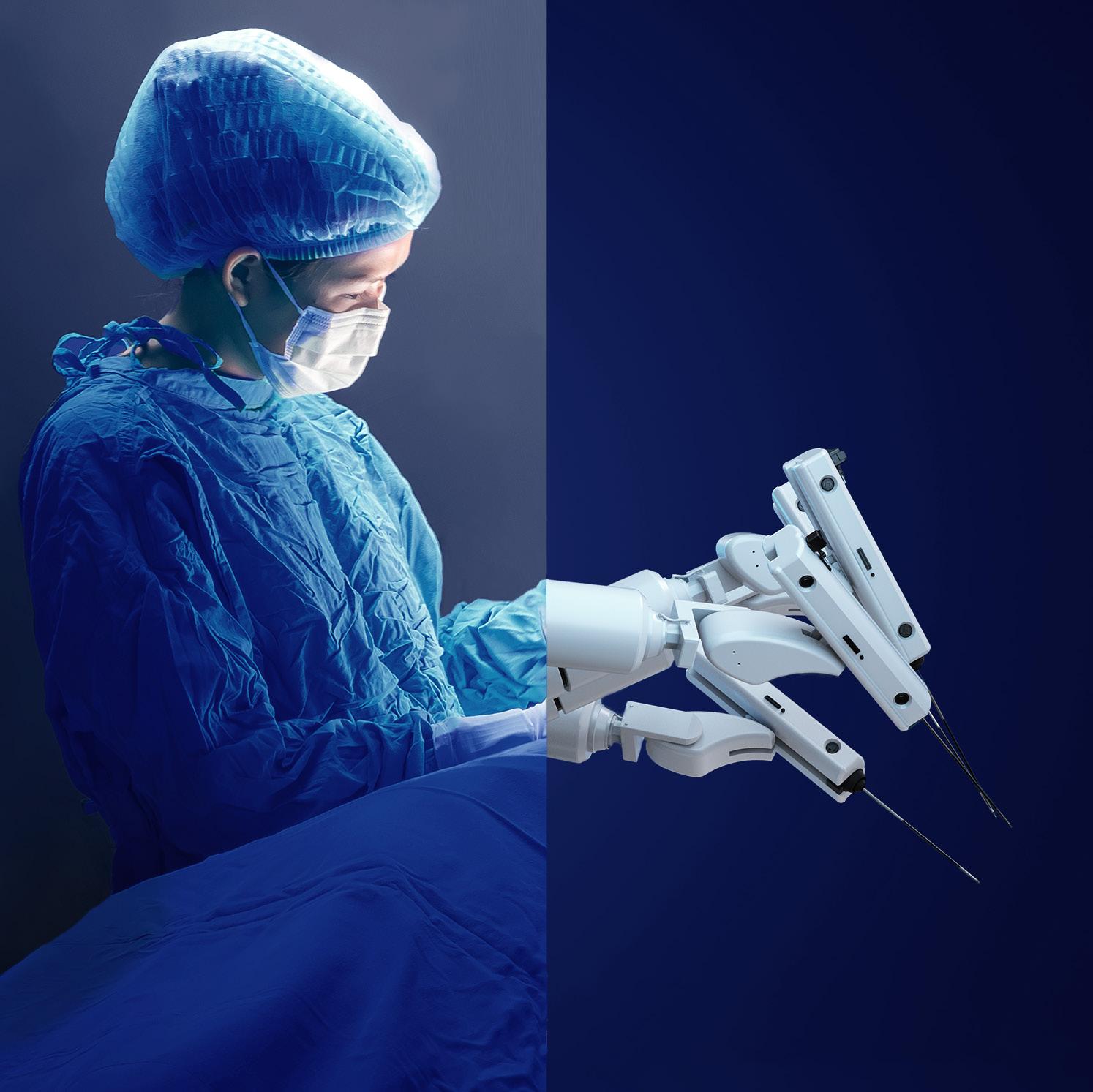
HEALTHCARE IS CHANGING AT A PHENOMENAL SPEED.
The University of Surrey has created a brand-new medical school offering an innovative medical programme, with the evolving healthcare environment in mind. Our programme will not only educate you to be a doctor, but equip you with the digital and leadership skills you will need in the medical landscape of tomorrow. I cannot wait to welcome you to join us.
and Vice-Chancellor
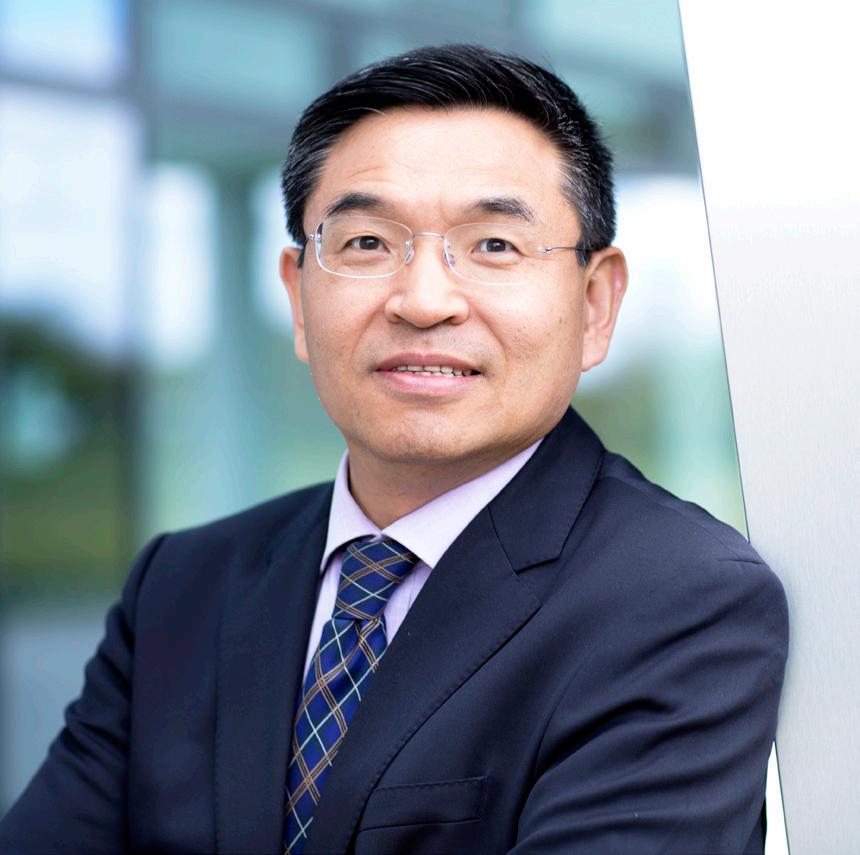 PROFESSOR G Q MAX LU President
PROFESSOR G Q MAX LU President
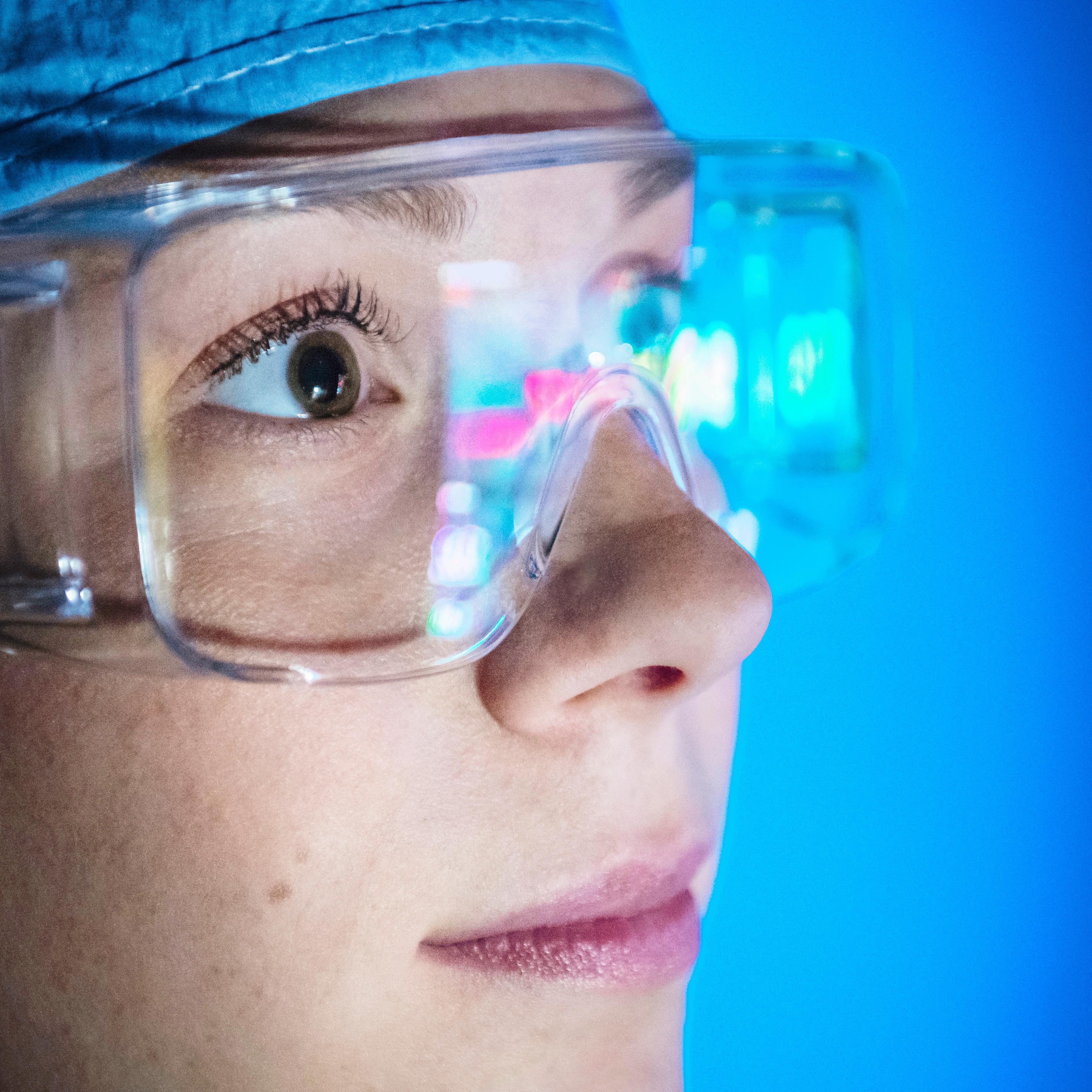
MEDICAL EDUCATION SHAPED AROUND YOU
A guiding principle of medical care in the UK National Health Service (NHS) is that it should be patient-centred – responding not only to the patient’s clinical conditions, but also their lifestyle, wishes, responsibilities and beliefs.
The best medical education should follow the same principle, delivering student-centred teaching and learning that responds to the needs and professional ambitions of each learner.
I’m proud that the School of Medicine at the University of Surrey has devised a medical programme that meets these goals.
Theory and practice together
Our spiral curriculum enables learning at different speeds and in different styles. Over your four years, theory and practice go hand in hand.
As you explore different clinical conditions, you’ll learn aspects of anatomy, assessment and diagnostic techniques, pathological and psychological factors, often in the company of students on a range of different professional health programmes.
At the same time, you’ll take part in supervised practical work in safe and simulated environments, before moving into structured clinical placements at our partner NHS trusts and community general practices.
Close support from lecturers
At each stage, we have built in time to reflect on your experiences with your peers and with our team of lecturers, many of whom continue to work in frontline healthcare while others are at the forefront of leading clinical research. We have an excellent staff:student ratio, ensuring that you benefit from close support and mentoring.
More choice, more freedom
Our clinical and simulation facilities too are at your disposal and you’ll have plenty of time to practise your techniques in our Independent Clinical Learning Space.
As the course progresses, there are opportunities to specialise, with placements in Trusts with outstanding reputations in areas from oncology to ophthalmology and also in local community general practices.

Our goal is to put our students in charge of their own development, not only nurturing the independence and resilience that you’ll need as a doctor, but instilling the drive and ambition to continue with lifelong learning, contributing to the advance of medical science.
PROFESSOR JULIET WRIGHT
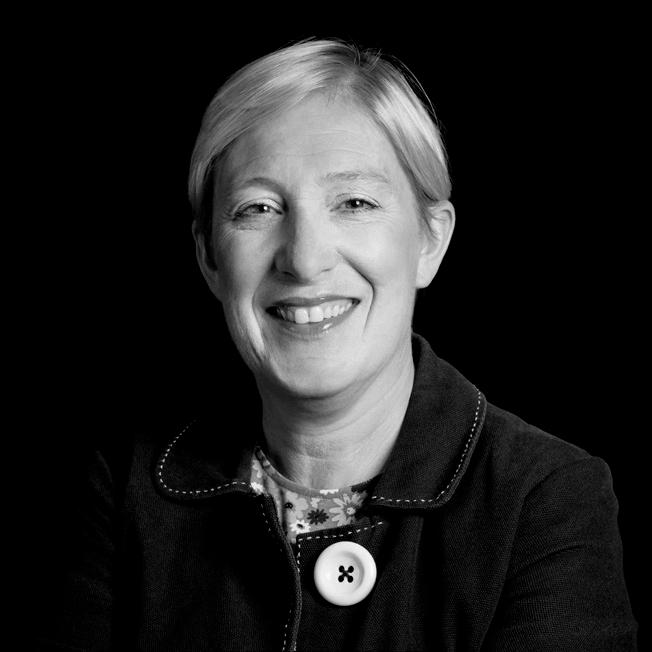 Founding Dean, University of Surrey School of Medicine
Founding Dean, University of Surrey School of Medicine

MEDICAL EDUCATION TOGETHER
When you join the School of Medicine at the University of Surrey you’ll become part of the Faculty of Health and Medical Sciences – creating opportunities that a standalone medical school cannot replicate.
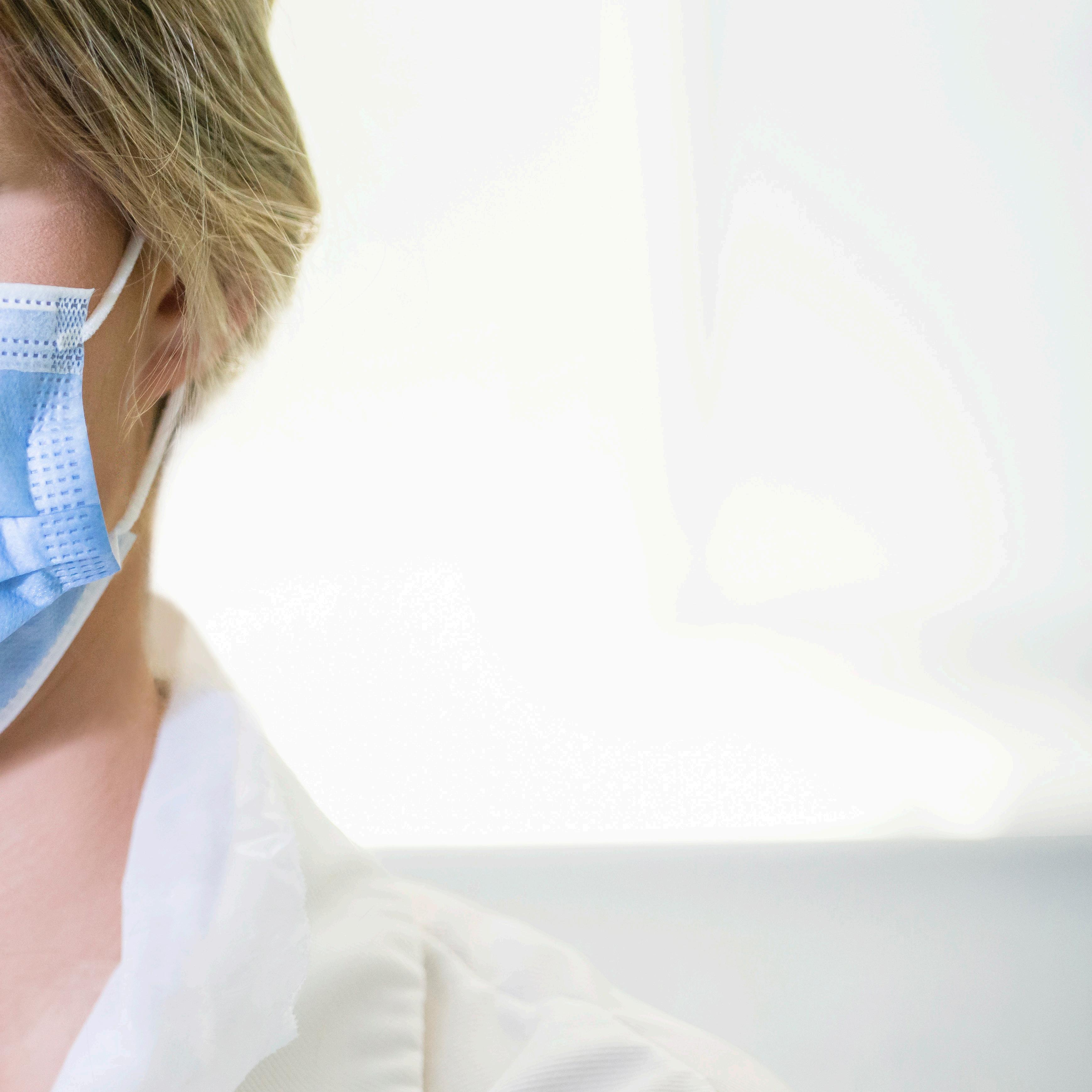
Under the Faculty’s ambition of One Health, One Medicine, different health professions learn together. You’ll find yourself in lectures or clinical practicals with students on our nursing, midwifery, paramedic science, physician associate and psychology programmes – with two major benefits.
Firstly, you’re learning in an environment that not only reflects the UK National Health Service but also many clinical environments around the world, where health professionals work as part of an interprofessional team. Secondly, you’ll learn with and from students with very different life experiences, enriching your understanding of patients and their individualised needs.
But One Health, One Medicine goes further still. Reflecting the fundamental similarities between humans and animals, you’ll learn aspects of anatomy, amongst other things, alongside students from our School of Veterinary Medicine. You’ll explore the possibilities of translating research findings from the animal world to humans (or vice versa). Crucially, in an era when the risks of cross-species transmission have never been more relevant, you’ll study zoonoses. It’s all part of applying our wider medical and biological knowledge to improve human health.
ALL OF THE TEACHING AND RESEARCH IN OUR FACULTY IS BUILT ON THE UNDERLYING AIM OF ACHIEVING OPTIMAL HEALTH OUTCOMES FOR ALL.
 PROFESSOR PAUL TOWNSEND Pro-Vice-Chancellor and Executive Dean of the Faculty of Health and Medical Sciences
PROFESSOR PAUL TOWNSEND Pro-Vice-Chancellor and Executive Dean of the Faculty of Health and Medical Sciences
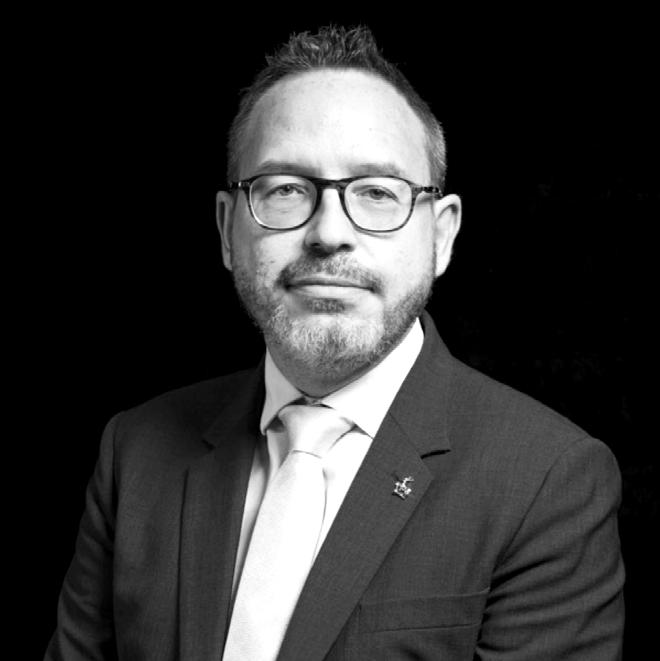

MEDICAL EDUCATION FOR THE FUTURE OF HEALTHCARE
Technology is advancing medicine – and medical care – at an incredible rate.
Wearable and nearable devices are being used to monitor more and more aspects of a patient’s health. Digital pathology and artificial intelligence (AI) can accelerate diagnosis, often from just a cell image. Treatments can be personalised, based on a patient’s biological information, while genetic data can help predict the risk of disease.
Even patient consultations are becoming increasingly virtual.
The changing role of the doctor
But technology alone cannot and does not cure people. The skill of the doctor will increasingly involve knowing when and how to use these different tools within patient care.
That requires an understanding of what different technologies can, and can’t do. It involves, for instance, developing the skills to apply AI to inform diagnosis – and recognising the right point to insist on face-to-face care. It might require a knowledge of different devices or sensors and the way they work,

IN MEDICINE, TECHNOLOGY ENHANCES PATIENT SAFETY AND QUALITY OF LIFE, DEEPENS OUR UNDERSTANDING OF DISEASE AND ITS MANAGEMENT, AND EMPOWERS DOCTORS TO MAKE BETTER DECISIONS, FASTER.
Professor e-One Health and Head of Statistical Multi-Omics
PROFESSOR INGA PROKOPENKO
so you are able to explain clearly to the patient what they are required to do to generate reliable data which enables effective treatment.
Understanding technology
On our medical programme, you will explore the application of technologies within the health environment. You’ll have multiple opportunities to examine and learn about different technologies – for example, learning from our specialists in dementia research how they are using sensors to provide emergency alerts and ongoing monitoring, to enable patients to live independently for longer.
Understanding how to apply technology
But equally importantly, you’ll examine the ethics of using technology in this way. You’ll look at lifestyle factors, helping you determine the suitability of different devices for different patients. Throughout, there’s an emphasis on communication skills and health psychology, reassuring patients about how the technology will work, presenting data and explaining potential risks in a way that they can understand.
We aim to equip students with the skills, knowledge and confidence to incorporate technology into the care journey, so you can provide more personalised, holistic and effective care for the patient.
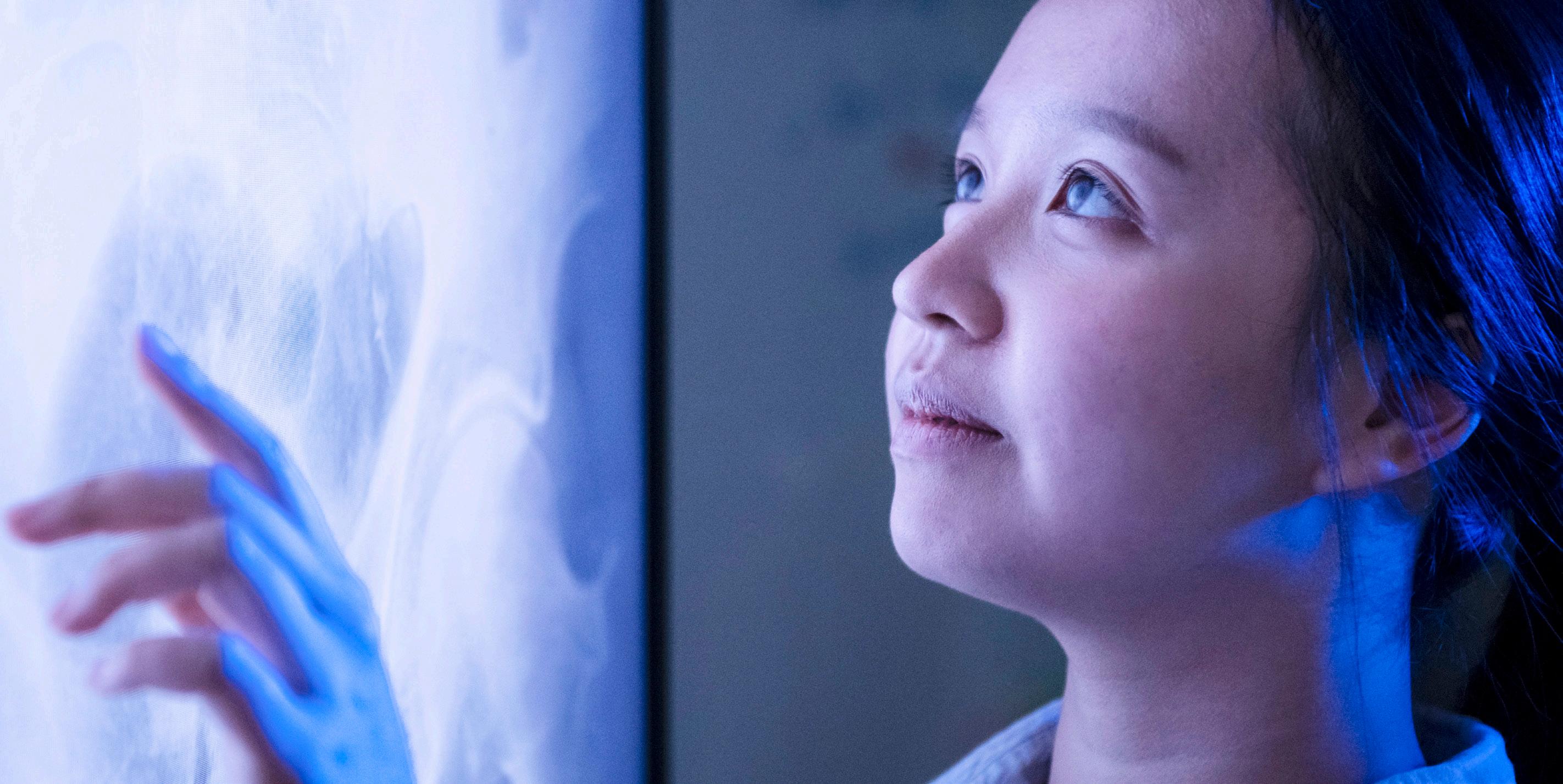 DR JIA DOULTON Programme Leader for PGDip Physician Associate Studies
DR JIA DOULTON Programme Leader for PGDip Physician Associate Studies
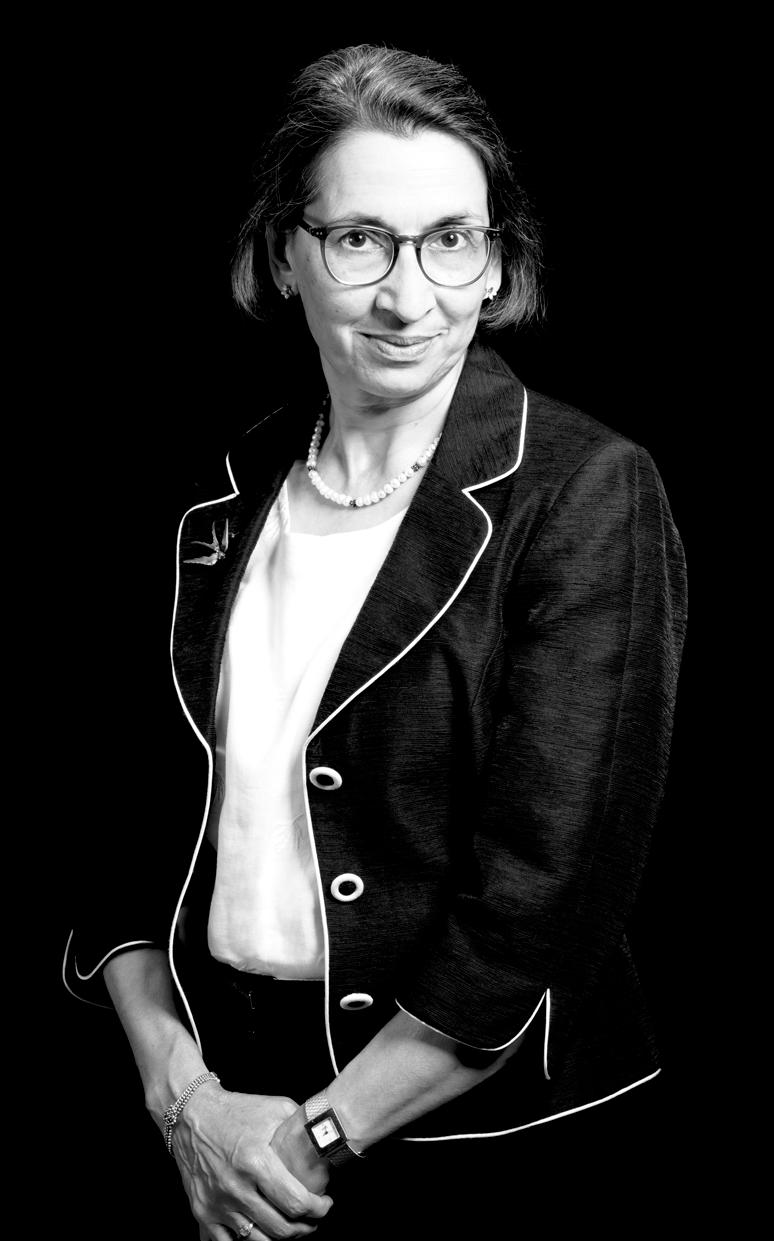
From day we foster even in the of teamwork the patient of that team.
day one we foster an ethos, the classroom, of teamwork – with patient as part team.
MEDICAL EDUCATION THAT PREPARES YOU FOR A CAREER IN MEDICINE
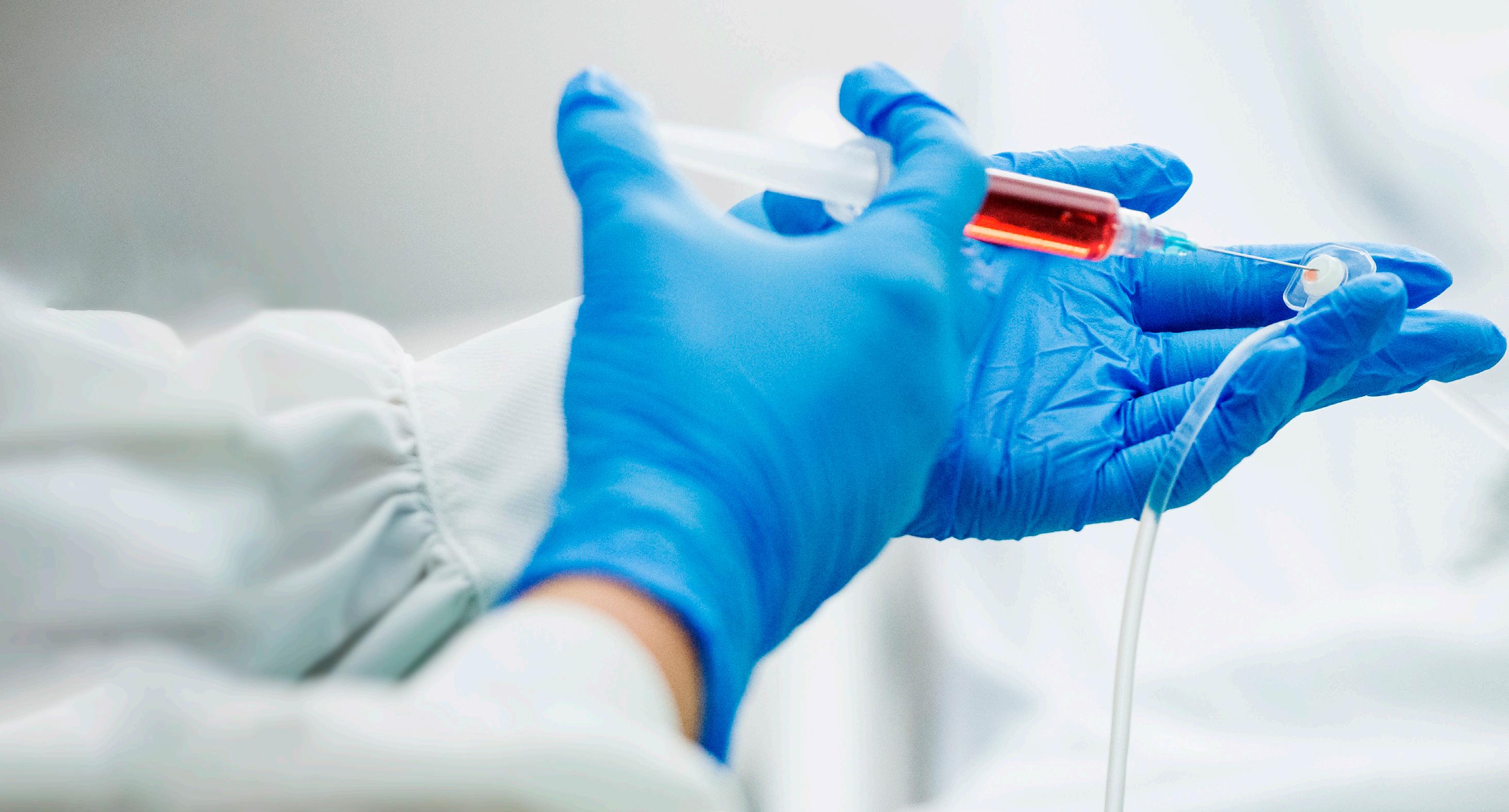
Students choose medicine because they want to make a difference. With a degree from the School of Medicine at the University of Surrey, you’ll be ready – and feel ready – to do so from day one.
Trusted partners and quality placements
You’ll be equipped with first-hand experience of working in clinical placements at our partner NHS Trusts and Primary Care providers, all centres of excellence in their field.
Our strong established relationships with our clinical placement partners have been developed over
many years, hosting students on all of our health professional programmes. They know that University of Surrey students arriving in their units will be fully prepared for the realities and rewards of dealing with and caring for real patients.
Simulation that builds confidence
You’ll benefit from our innovative use of simulations. From the earliest stage of your programme, you’ll have the opportunity to examine ‘patients’, in the form of actors – building your confidence in both medical techniques and communication skills.
This leads to immersive simulations, held in our purpose-built facility. You’ll be in charge of a team of students from different health disciplines, as a complex scenario unfolds.
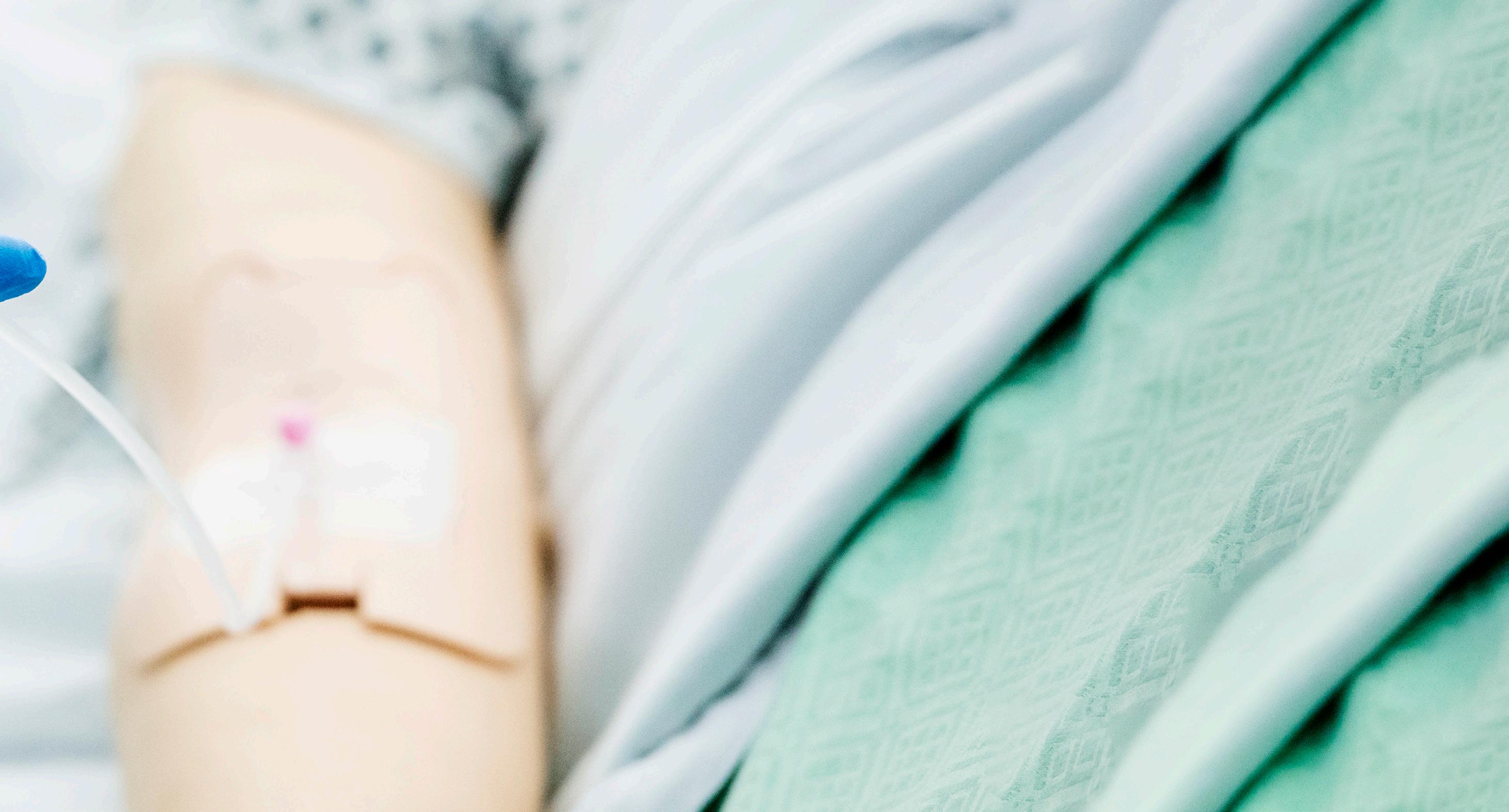
You practise not only your clinical skills, but also leadership, in a pressurised, yet perfectly safe, simulated environment.
Focusing on transition
Everything is shaped around ensuring that your transition from student to Foundation Doctor is as smooth as possible. It epitomises our determination to support our students, so that you can focus on what matters: your patients.
Dean of the Faculty of Health and Medical Sciences; Head of the School of Health Sciences
WE’RE EDUCATING OUR STUDENTS TO APPLY THEIR KNOWLEDGE AND COMMUNICATE EFFECTIVELY AS PART OF AN INTERPROFESSIONAL TEAM, FOR THE HIGHEST QUALITY PATIENT OUTCOMES.
Deputy
PROFESSOR MELAINE COWARD
MEDICAL EDUCATION AT
THE HEART OF THE COMMUNITY
At our School of Medicine, you’ll join a small group of students, all of whom have already completed an undergraduate degree programme from a wide range of disciplines. You’ll learn in modern, purpose-built facilities on our Manor Park campus in Guildford – with all essential services close by. And all our NHS clinical partners are in commuting distance of Guildford, meaning you can be based here for four years and really get to know the town and the nearby countryside – and yet still be only 35 minutes away from the heart of London. It provides an opportunity to put down roots and become part of our thriving community.

DISCLAIMER
We’ve made all reasonable efforts to ensure that the information in this publication was correct at the time of going to print in August 2022, but we can’t accept any liability for any inaccuracies in the information published, and the information might change from time to time without notice. Before making any decisions about your course of study, please visit our website at surrey.ac.uk for the latest and most up-to-date information.
This course is subject to validation. The GMC will monitor our programme on a rolling basis. The final-stage assessment and approval for the award of a UK medical degree is made when the first cohort graduate. The University of Exeter will act as our contingency school during this time.
WE OFFER A UK MEDICAL EDUCATION THAT IS GLOBALLY RELEVANT.
DR. KAMALAN JEEVARATNAM Associate Dean International, Faculty of Health and Medical Sciences
SURREY.AC.UK/MEDICALSCHOOL DISCOVER MORE AND APPLY AT
THE FUTURE OF MEDICINE, TODAY MEDICINE BMBS GRADUATE ENTRY MEDICINE SCHOLARSHIPS
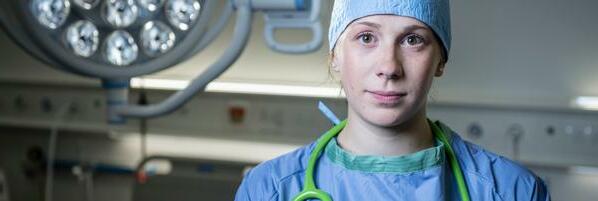
2024/25
To meet our objective of widening access to medical education and to meet the local health workforce requirements, we are offering a small number of scholarships for Home students. Scholarship applicants must meet the course entry requirements and fulfil the following criteria:
• Are ordinarily resident in Surrey, Sussex or Hampshire
And one of the below:
• Are a University of Surrey graduate

• Are care experienced (anyone who has been or is currently in care or from a looked-after background at any stage in their life, no matter how short, including adopted children who were previously looked-after)
• Are ordinarily resident in an area of multiple deprivation (Index of Multiple Deprivation (IMD) Quintile 1)
• Are ordinarily resident in an area of low participation to Higher Education (POLAR4, Quintile 1)
• Have a disability or long-term health condition (as defined by UCAS)
• Students who are a registered young carer – they care for a friend or family member who, due to illness, disability, a mental health problem or an addiction, cannot cope without their support
We are only able to consider scholarship applications from Home UK applicants.
Applicants that meet the criteria above will be invited to interview based on their UCAT score.
All information to evidence the above must be included on the applicants UCAS form, we are not able to accept supplementary evidence.
DISCLAIMER
We’ve made all reasonable efforts to ensure that the information in this publication was correct at the time of going to print in January 2023, but we can’t accept any liability for any inaccuracies in the information published, and the information might change from time to time without notice. Before making any decisions about your course of study, please visit our website at surrey.ac.uk for the latest and most up-to-date information.
This course is subject to validation. The GMC will monitor our programme on a rolling basis. The final-stage assessment and approval for the award of a UK medical degree is made when the first cohort graduate. The University of Exeter will act as our contingency school during this time.
MEDICINE BMBS
We are an independent medical school, and in accordance with government regulations, the majority of places in our initial intake will be for international students. To meet local demand and widen access to a career in medicine we will also be offering a small number of places to UK (Home) students via a seperate scholarshio scheme.
Entry requirements
Minimum of a 2:1 UK honours degree (or equivalent).
A-level (or equivalent):
Biology or a life sciences subject at grade C or above
GCSE (or equvalent):
Maths and English at garde C or above.
WHAT WILL YOU STUDY?
On this course, theory and practice go hand in hand.
You’ll develop your medical skills by taking part in supervised practical simulations in our multi-millionpound facilities, before moving into structured clinical placements at our partner NHS trusts.
As you explore different conditions, you’ll learn relevant anatomy, physiology, pathological, social and psychological factors as you develop essential diagnostic and management skills.
Throughout your studies, there are also opportunities to specialise and take on placements in trusts with outstanding reputations in areas from oncology to ophthalmology.
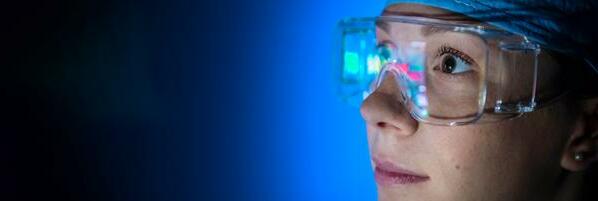
ACADEMIC YEAR STRUCTURE
Year 1
The first year of our Graduate Entry Medicine programme ensures you start to acquire the knowledge and skills that underpin modern medical practice.
The programme comprises eight case units with learning centred on a medical scenario alongside special study units. This follows completion of a foundational preparatory summer e-learning course, an induction week of orientation activities and an introductory three-week induction block of learning.
Year 2 and Year 3
Please be aware this course commences in the 2024/25 academic year and starts in September 2024.
During these two years your learning will be based in our associated NHS trusts. Your placements will take place in a wide range of primary and secondary care specialities, where you’ll benefit from direct and experiential learning alongside all members of the clinical team. Learning will take place in the acute setting, from the emergency
THE FUTURE OF MEDICINE, TODAY
GRADUATE ENTRY MEDICINE BMBS 2024/25 UCAS:A101
department to the operating theatre. As well as in clinics, inpatient and outpatient facilities and in a range of primary care, community and innovative services.
Year 4
Preparation for medical practice: In your final year, you’ll learn in placement blocks as senior students–supporting the clinical teams and developing your diagnostic and management skills to pass the medical licensing assessment and to work as a foundation doctor
Elective opportunities in different countires and haelth economies can be considered in your final year
TEACHING
You’ll learn from world-leading academics and clinicians who have a wide range of clinical expertise.
Your teaching will be delivered through a combination of:
• Group work (e.g. problem-based learning)
• Lectures
• Placements
• Role plays and immersive simulations
• Tutorials and seminars
• Laboratory practicals
• Clinical skills teaching.
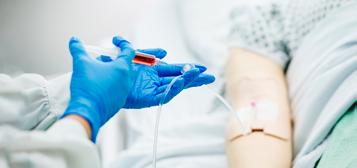
Outside of these, you’ll be expected to carry out independent study, including coursework, essays and reading.
SELECTION PROCESS
Stage 1: Preliminary shortlisting Applications recieved from UCAS are initially considered on the basis of academic achievement and achieved/ predicted grades.
Stage 2: Aptitude Test – UCAT or GAMSAT
UCAT and GAMSAT are online aptitude tests that are required to have been completed by all applicants before they apply. More details regarding these tests can be found on the UCAT and GAMSAT websites.
UCAT/GAMSAT will send your scores directly to the University for assessment.
Stage 3: Interview
Once short-listed for an interview, you’ll be sent an invitation to an interview day with the University of Surrey. We will have a selection of virtual and in-person interview events and interviews will take place
from November 2023 - January 2024. All applicants must take part in a Multiple Mini Interview cycle that lasts under one hour.
Fees
The annual tuition fees for courses starting in September 2024.
UK : TBC
Overseas : TBC
The University will assess your free status. If you are unsure whether you are likely to be considered a home, EU or overseas student for fees purposes, the UKCISA website offers more information
DISCLAIMER
We’ve made all reasonable efforts to ensure that the information in this publication was correct at the time of going to print in January 2023, but we can’t accept any liability for any inaccuracies in the information published, and the information might change from time to time without notice. Before making any decisions about your course of study, please visit our website at surrey.ac.uk for the latest and most up-to-date information.
course
subject to validation. The GMC will monitor our programme on a rolling basis. The final-stage assessment and approval for the award of a UK medical degree is made when the first cohort graduate. The University of Exeter will act as our contingency school during this time.
This
is
REGISTER YOUR INTEREST surrey.ac.uk/medicalschool

 PROFESSOR G Q MAX LU President
PROFESSOR G Q MAX LU President



 Founding Dean, University of Surrey School of Medicine
Founding Dean, University of Surrey School of Medicine


 PROFESSOR PAUL TOWNSEND Pro-Vice-Chancellor and Executive Dean of the Faculty of Health and Medical Sciences
PROFESSOR PAUL TOWNSEND Pro-Vice-Chancellor and Executive Dean of the Faculty of Health and Medical Sciences



 DR JIA DOULTON Programme Leader for PGDip Physician Associate Studies
DR JIA DOULTON Programme Leader for PGDip Physician Associate Studies







